QuestionQUESTION: I am a new owner of a 13 year old Nanday Conure who was rescued from a home of smokers. He was with the rescue group for about 3 weeks. He seems OK, but when he is wet he smells terribly of cigarette smoke. His previous cage mate died after he was given a steamy bath and brown fluid came up from his lungs. For this reason, we were told not to put him in water warm enough to create steam. Should we let this second hand smoke wear off over time, or try to remove it somehow? I expected him to enjoy water, but I can see why he doesn't with that awful smell. Thank you
ANSWER: I'm amazed this bird survived this long! Birds' respiratory systems are extraordinarily sensitive, this guy is a fighter isn't he? I'm so glad you have him.
A steamy bath may not be the cause of the first one's death - I'd like to have seen a necropsy done to determine what happened, but nevertheless, a healthy spritzing of warm water, gently, carefully (so not to make him afraid of it, but rather, to like it) will help. it may take time, but this smell isn't permanent.
I'd also be concerned that he may mourne the loss of his mate and cause a stress reaction that may be complicated with a bird like this. His immune system is likely weakened by his history - you have to be very on alert for the slightest symptoms.
Has he been evaluated by an avian vet?
---------- FOLLOW-UP ----------
QUESTION: Thank you. I appreciate another opinion. I believe he was seen by a vet of the rescue organization, but I think I will take him in myself for a baseline analysis. We are watching him very closely. Do you have any recommendations for a bird that may be in mourning? He was previously very protective of his former friend, a sun conure who was in worse condition than he was.
Answer Good job! It's always wise to find your own vet, preferably an avian vet or one who is well experienced with birds. Rescue shelters don't often deal with birds and their vets may only have some basic knowledge and guidelines to follow (this isn't always the case, but your own vet is still necessary).
You're going to have to increase human interaction and encourage him to participate in daily routines. He may take to 'sulking', refusing to come out of his cage, getting 'bitey'/moody and even going off his food, both as a response to the mate loss and the new environment.
Keep his day upbeat and gentle. Keep noise levels moderate to subdued. We find that whispering in close proximity to these new rescues helps tremendously.
take a look at us and what we do - along with some suggestions and then let me know, here or through my site, if there's anything else I can do.
I'm with you all the way!
www.geocities.com/animalrelief_info
(you may have to cut and paste this into your address bar)

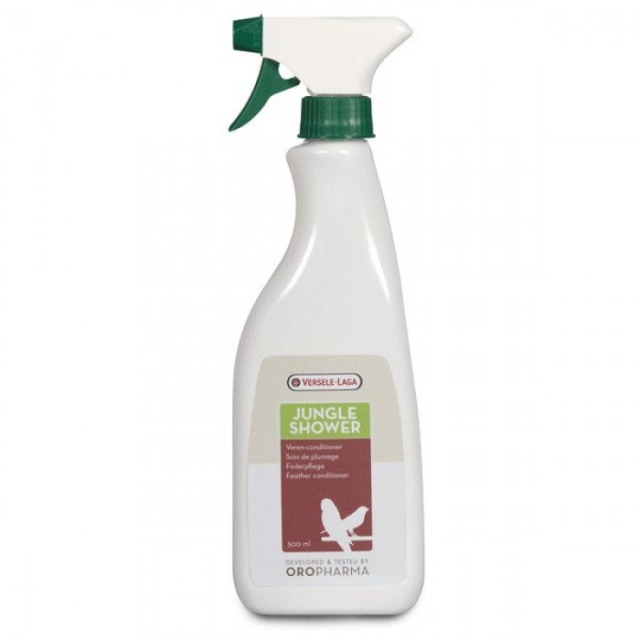 Indian Ringneck Health Issue
QuestionI have an Indian Ringneck who had been neglecte
Indian Ringneck Health Issue
QuestionI have an Indian Ringneck who had been neglecte
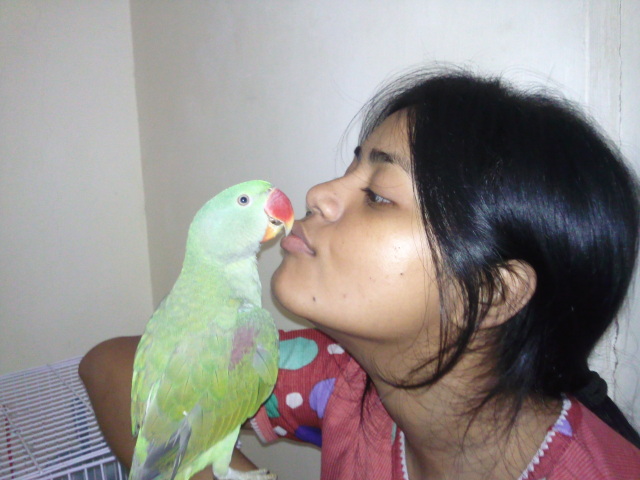 can i give my parrot chole(chana) called in hindi
Question
my little chaddi alexa
dear sir,
can give chan
can i give my parrot chole(chana) called in hindi
Question
my little chaddi alexa
dear sir,
can give chan
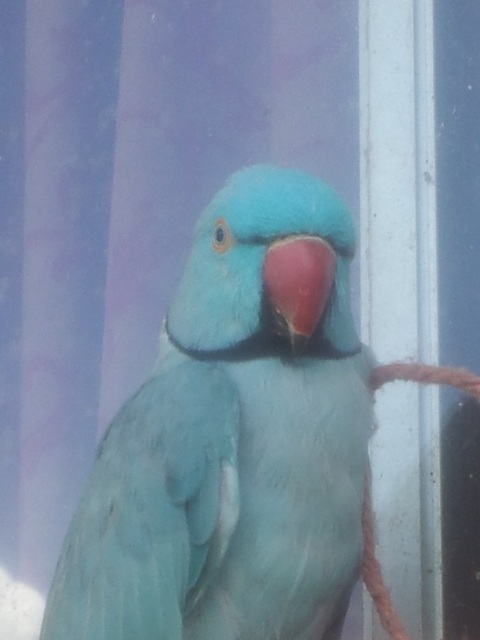 RE: Indian Ringneck probems
Question
Indy our Ringneck
Thank you for your he
RE: Indian Ringneck probems
Question
Indy our Ringneck
Thank you for your he
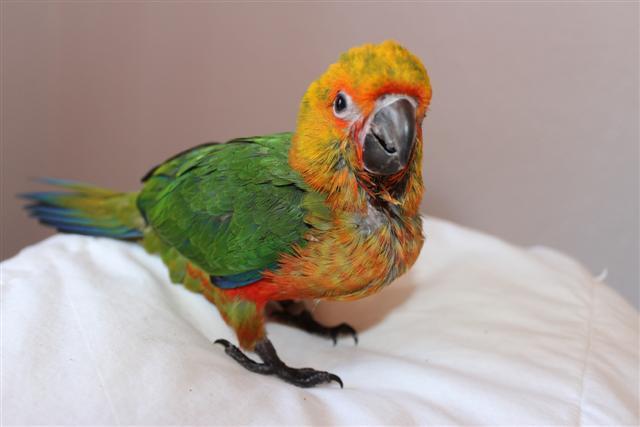 Jenday Conure Weaning?
Question
Castor the Conure
Hi
I have a 9 week o
Jenday Conure Weaning?
Question
Castor the Conure
Hi
I have a 9 week o
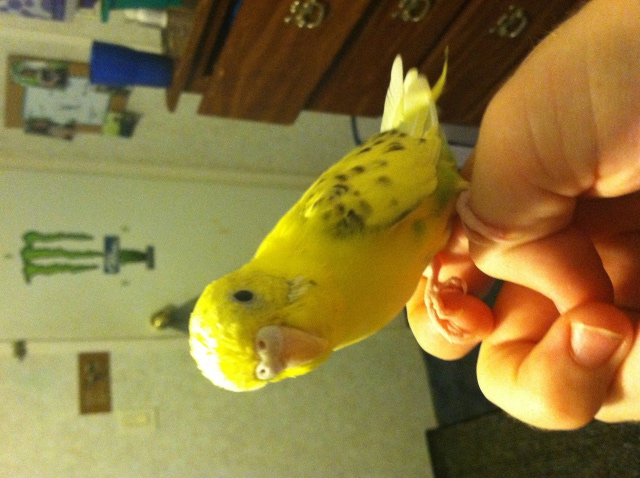 Parakeet gender
Question
Parakeet
Hi, I looked for an expert und
Parakeet gender
Question
Parakeet
Hi, I looked for an expert und